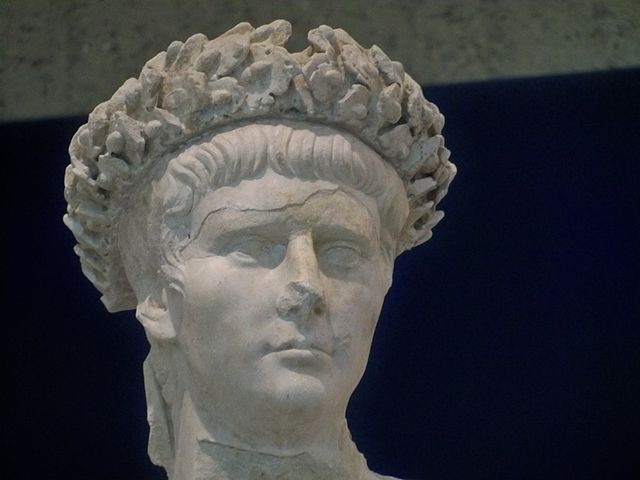The creation of Imperial gods: Not only imposition versus spontaneity
By Fernando Lozano
More than Men, less than Gods. Studies on Royal Cult and Imperial Worship, Studia Hellenistica, Vol. 51 (Leuven, 2011)

Introduction: In the year 12 B.C., during the preliminary stages of Drusus Caesar’s campaigns in Germania, a cult was founded in Gaul. It was consecrated to Rome and Augustus and maintained an altar where envoys from up to 60 cities would gather to hold the annual festivities of both divinities. In the beginning, the foundation of this worship was intended to facilitate the integration of the local population and to prevent the main Gaulish chiefs from rebelling while the Roman army was busy in enemy territory. Historiography has traditionally explained this cult as a Roman imposition over the unruly Gaulish society, an imposition that subjugated the peoples of the newly incorporated province to Rome.
At about the same time, on the opposite side of the empire, the Asian League decreed that a crown would be granted to the man who would propose the most adequate practice to honor Augustus. The winner of such a peculiar contest was the Proconsul of Asia, Paulus Fabius Maximus; his proposal, apparently accepted by the league with enthusiasm, was to start to count the year on the day of Augustus’ birthday. Therefore, this idea of honoring Augustus’ birthday did not come from the Greeks themselves, but from a Roman. As is habitual in the east, however, this did not prevent the origins of the cult from being attributed to a spontaneous initiative on the part of Asian cities to honor the first Caesar.


 The examples mentioned above represent the main two branches into which historiography has customarily divided imperial cult practices: on the one hand, those centrally imposed, as in the west; on the other, the spontaneous tribute mainly related to the east. Such an interpretation, which only recognizes two origins for imperial cult rituals, can be termed the dichotomy of imposition versus spontaneity. Even though the model has been severely criticized in recent works, it is still widely used in the literature that deals with the formation and development of the imperial cult. For instance, Duncan Fishwick summarizes his position in the first volume of his extensive work dedicated to imperial cult: “In the origin the impetus to establish the ruler cult came from the east; but in the west provincial cult, at least, was for the most part installed by Augustus and his successors.” This author maintains his standpoint in the third volume of his work on the imperial cult in the western part of the empire:
The examples mentioned above represent the main two branches into which historiography has customarily divided imperial cult practices: on the one hand, those centrally imposed, as in the west; on the other, the spontaneous tribute mainly related to the east. Such an interpretation, which only recognizes two origins for imperial cult rituals, can be termed the dichotomy of imposition versus spontaneity. Even though the model has been severely criticized in recent works, it is still widely used in the literature that deals with the formation and development of the imperial cult. For instance, Duncan Fishwick summarizes his position in the first volume of his extensive work dedicated to imperial cult: “In the origin the impetus to establish the ruler cult came from the east; but in the west provincial cult, at least, was for the most part installed by Augustus and his successors.” This author maintains his standpoint in the third volume of his work on the imperial cult in the western part of the empire:
The overall impression one has in retrospect, then, is of central orchestration and control throughout the entire period from Augustus down to the middle of the third century […] By and large provincial cult in the West appears as an instrument of imperial policy, a device that could be manipulated in whichever direction the purposes of the central authority might require.
Click here to read this article from Academia.edu
Sponsored Content


The creation of Imperial gods: Not only imposition versus spontaneity
By Fernando Lozano
More than Men, less than Gods. Studies on Royal Cult and Imperial Worship, Studia Hellenistica, Vol. 51 (Leuven, 2011)
Introduction: In the year 12 B.C., during the preliminary stages of Drusus Caesar’s campaigns in Germania, a cult was founded in Gaul. It was consecrated to Rome and Augustus and maintained an altar where envoys from up to 60 cities would gather to hold the annual festivities of both divinities. In the beginning, the foundation of this worship was intended to facilitate the integration of the local population and to prevent the main Gaulish chiefs from rebelling while the Roman army was busy in enemy territory. Historiography has traditionally explained this cult as a Roman imposition over the unruly Gaulish society, an imposition that subjugated the peoples of the newly incorporated province to Rome.
At about the same time, on the opposite side of the empire, the Asian League decreed that a crown would be granted to the man who would propose the most adequate practice to honor Augustus. The winner of such a peculiar contest was the Proconsul of Asia, Paulus Fabius Maximus; his proposal, apparently accepted by the league with enthusiasm, was to start to count the year on the day of Augustus’ birthday. Therefore, this idea of honoring Augustus’ birthday did not come from the Greeks themselves, but from a Roman. As is habitual in the east, however, this did not prevent the origins of the cult from being attributed to a spontaneous initiative on the part of Asian cities to honor the first Caesar.
The overall impression one has in retrospect, then, is of central orchestration and control throughout the entire period from Augustus down to the middle of the third century […] By and large provincial cult in the West appears as an instrument of imperial policy, a device that could be manipulated in whichever direction the purposes of the central authority might require.
Click here to read this article from Academia.edu
Sponsored Content